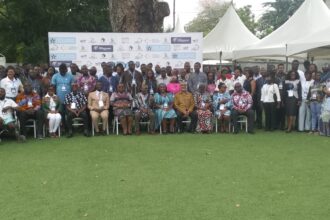UNFPA says nearly half the women and girls in developing countries do not have decision-making power over their own bodies, including in whether or not to have sex with their partners.
Nearly half the women and adolescent girls in developing countries are denied the right to decide whether or not to have sex with their partners, use contraception, or seek healthcare, according to a new report by the United Nations.
The UN’s Population Fund (UNFPA) on Wednesday called the finding “alarming” and said the lack of bodily autonomy threatened women’s safety, potentially reduced economic productivity and resulted in extra costs to a country’s healthcare and judicial systems.
The report, titled My Body is My Own (PDF), looked at both women’s power to make their own decisions about their bodies and the extent to which countries’ laws support or interfered with that right.
In the 57 developing countries where data was available, the report found 45 percent of women were not fully empowered to make choices over healthcare, contraception, and whether or not to have sex. There were differences across regions: While 76 percent of women in eastern and southeastern Asian make their own decisions over their bodies, the figure is less than 50 percent in sub-Saharan Africa and in central and south Asia.
In some countries – Mali, Niger and Senegal – more than 90 percent of women are deprived of their bodily autonomy, the report said.
“The fact that nearly half of women still cannot make their own decisions about whether or not to have sex, use contraception or seek health care should outrage us all,” said Dr Natalia Kame, executive director of UNFPA.
“In essence, hundreds of millions of women and girls do not own their own bodies. Their lives are governed by others.”
The root cause of the problem is gender discrimination, “which reflects and sustains patriarchal systems of power and spawns gender inequality and disempowerment”, the report said. But the more educated a woman was, the more likely she was to have decision-making power over her own body, it said.
In terms of laws that constrain women, the report found that 20 countries or territories worldwide have “marry-your-rapist” laws, where a rapist can escape criminal prosecution if he marries the woman or girl he raped, while 43 countries have no legislation addressing the issue of marital rape.
The report also said more than 30 countries across the world restrict women’s right to move around outside the home.
Separately, the UNFPA said despite constitutional guarantees of gender equality in many countries, on average, women enjoy just 75 percent of the legal rights of men.
And only 71 percent of countries guarantee access to overall maternity care, while only 75 percent ensure full, equal access to contraception.
The UNFPA said the existence of supportive sexual and reproductive laws did not depend on a country’s income level, with low-income countries such as Cambodia, Laos and Mozambique enacting laws and regulations that guaranteed both men and women equal access to sexual and reproductive health care, information and education.
Kanem said many of the shortfalls in bodily autonomy have worsened during the COVID-19 pandemic, with record numbers of women and girls at risk of gender-based violence and harmful practices such as early marriage.
“The denial of bodily autonomy is a violation of women and girls’ fundamental human rights that reinforces inequalities and perpetuates violence arising from gender discrimination,” she said.
“It is nothing less than an annihilation of the spirit, and it must stop.”
SOURCE: AL JAZEERA














